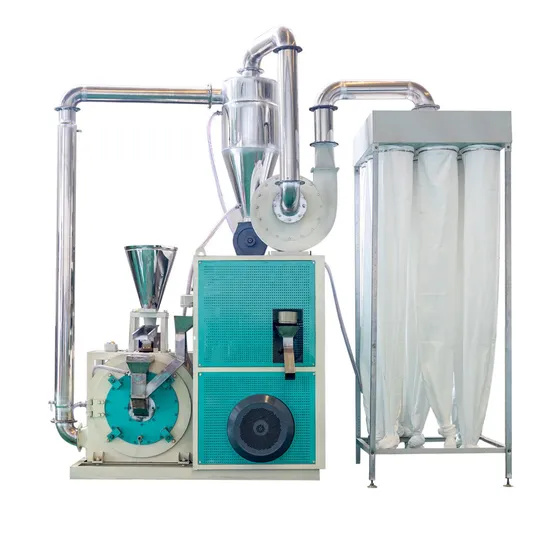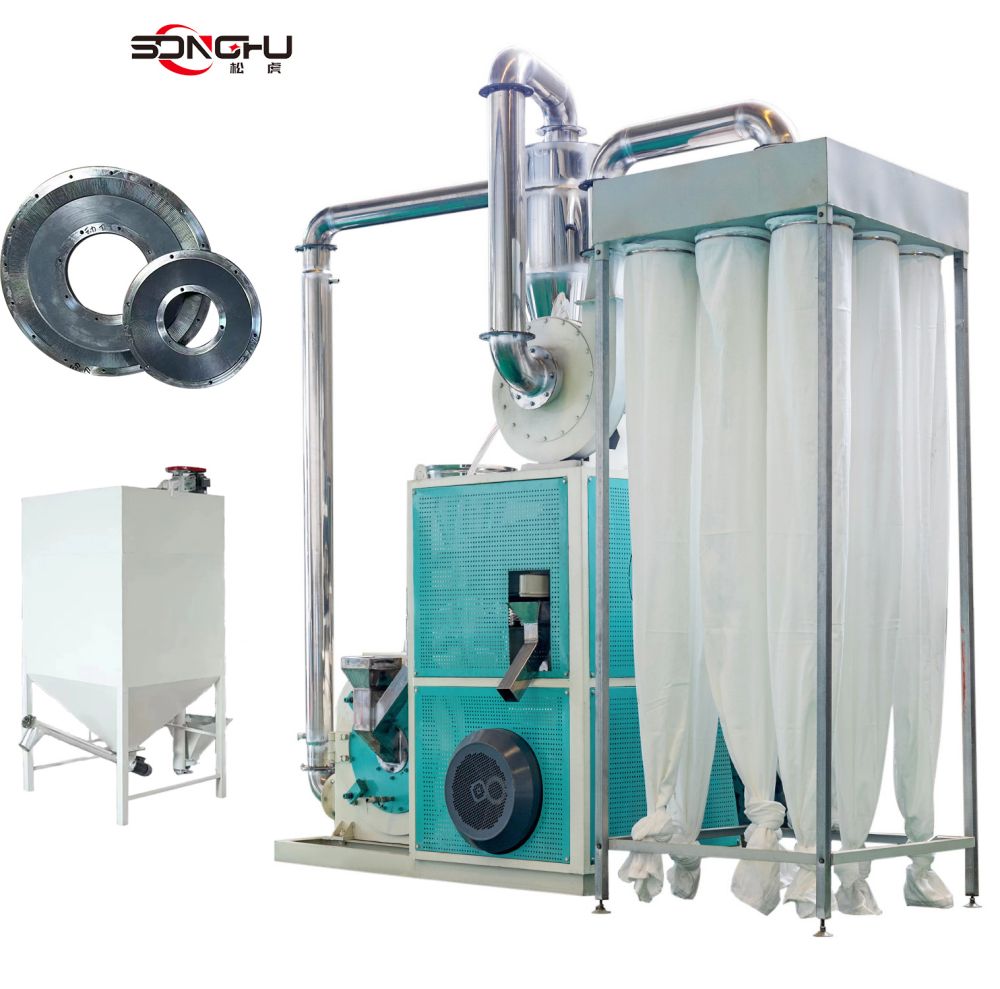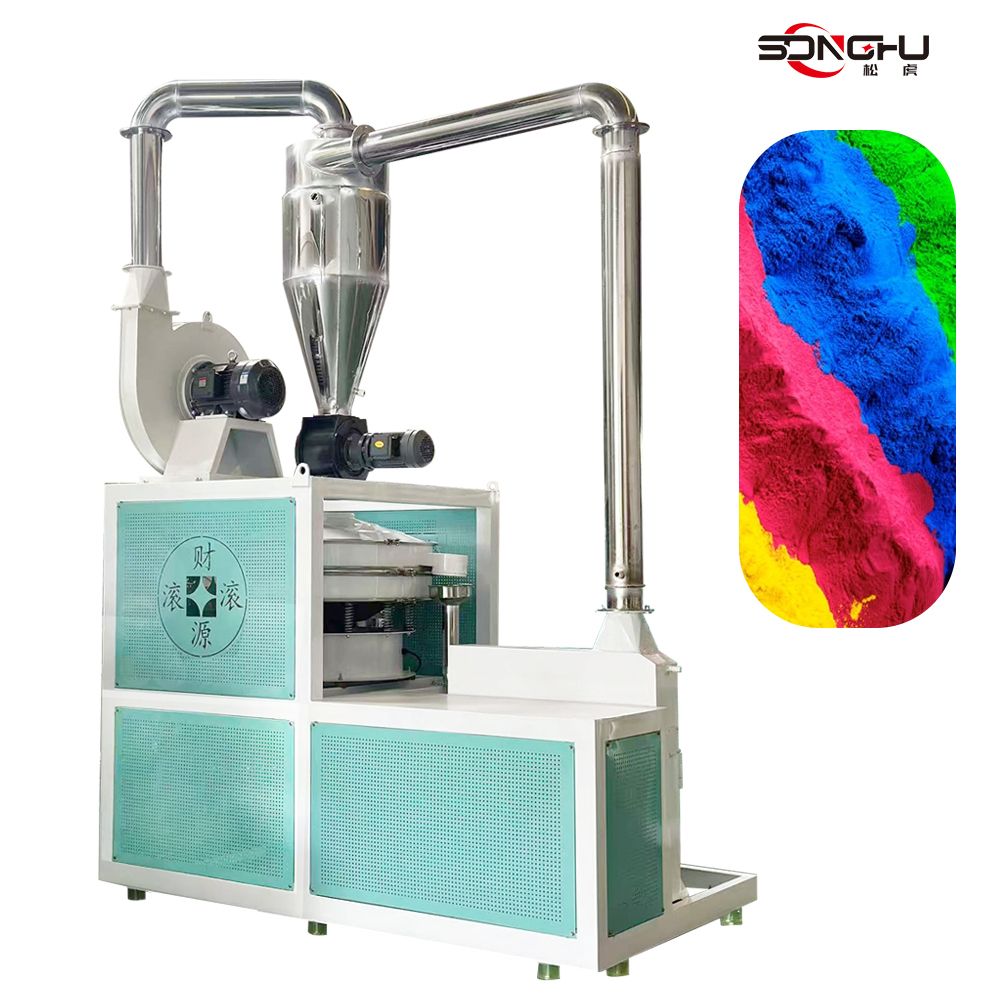- This topic is empty.
-
AuthorPosts
-
2025-07-24 at 6:17 pm #4205
Polyethylene (PE) is one of the most widely used plastics across packaging, pipe manufacturing, automotive, and recycling industries. But to unlock its full potential in downstream applications such as rotational molding, compounding, and masterbatch production, PE must often be transformed from resin granules into ultra-fine powder.
That’s where PE pulverizing comes in—a process that breaks down thermoplastic pellets into micron-sized particles with consistent granularity. In this comprehensive guide, we’ll walk through the PE pulverizing process, highlight key equipment, and explain how to choose the right machine for your application—featuring insights from a professional manufacturer of PE pulverizers and PVC crusher equipment.
What Is PE Pulverizing?
PE pulverizing is the mechanical process of grinding polyethylene granules into fine powder using specialized high-speed machinery. The resulting powder is used in various applications such as:
Rotomolding (rotational molding)
Powder coating
Plastic compounding
Masterbatch and additive production
Recycling and reuse of scrap material
The consistency, particle size, and purity of the powder are critical for downstream processing efficiency and product quality.

Step-by-Step Process of PE Pulverizing
Step 1: Material Preparation
Start with clean, dry, and pre-sorted PE granules. Ensure there is no contamination from moisture, metal, or other plastics.
HDPE and LDPE are commonly pulverized
Color masterbatch or additives may be blended beforehand
Materials should be pre-cooled if needed (especially for soft PE)
Notice:Moisture can lead to clumping, poor powder flow, and machine damage.
Step 2: Feeding the Pulverizer
PE granules are fed into the pulverizer via a vibrating feeder or screw conveyor, which controls the feed rate and ensures uniform processing.
High-performance pulverizers from our featured manufacturer offer:
Adjustable feed speeds
Hopper sensors to prevent overfeeding
Optional pre-cooling systems for temperature-sensitive materials
Step 3: Grinding and Pulverizing
The heart of the process takes place in the pulverizing chamber, where high-speed rotating discs or blades reduce the PE granules into fine particles.
There are two main types of pulverizing systems:
Disc-type Pulverizer
Ideal for thermoplastics like PE and PVC. Uses fixed and rotating discs with precision gaps.
Blade-type Pulverizer
Uses high-speed rotating blades and is suitable for tougher or mixed plastic materials.
Our recommended manufacturer offers both configurations, engineered with:
Wear-resistant steel or alloy discs
Water-cooled chambers for temperature control
High RPM motors for faster throughput
Step 4: Powder Collection and Classification
After pulverization, the fine powder is carried by airflow to a cyclone separator and collection system, where it's separated and gathered into storage containers or silos.
An automatic screening system may be added to classify powder into different mesh sizes, such as:
20–60 mesh (rotomolding applications)
60–100 mesh (masterbatch and coatings)
Efficient systems include:
Dust collectors to minimize environmental impact
Anti-static features for fine powder handling
Mesh-size adjustability
Step 5: Cooling and Storage
Once collected, PE powder must be cooled and stored properly to maintain flowability and prevent caking.
Use cooling conveyors or cooling chambers if the powder exits the machine hot
Store in sealed, moisture-proof containers
Label with mesh size, color, and batch number for quality tracking
Key Features of a High-Quality PE Pulverizer
When choosing a PE pulverizing system, look for:
1.Stable High-Speed Operation
With minimal vibration and noise, ensuring consistent powder quality.
2.Temperature Control System
Essential for preventing material softening or melting during processing.
3.Durable Materials
Wear-resistant discs and chamber linings for long machine life.
4.Adjustable Gap and Mesh Control
Fine-tune the output particle size based on application needs.
5.Automation and Safety Features
Including overload protection, auto-stop, dust extraction, and touch-screen controls.
Our featured manufacturer designs equipment that ticks all these boxes—providing long-lasting performance, energy efficiency, and low maintenance costs.

Applications of PE Powder
Rotational Molding: Water tanks, containers, toys, and automotive parts
Powder Coatings: Smooth, consistent surface coatings for plastics
Plastic Masterbatches: Color and additive dispersion
Recycling: Converting rejected parts or trimmings into reusable powder
Cable Compounding: Specialty electrical insulation materials
PE powder processed by professional pulverizing machines ensures tight particle size distribution and superior product performance in all these use cases.
Why Choose a Professional PE Pulverizer Manufacturer?
A reliable equipment supplier provides more than just a machine. A professional manufacturer of PE pulverizers and PVC crushers offers:
Customizable models based on production capacity (20–1000 kg/h+)
Technical consultation for layout and integration with existing lines
On-site installation and training
After-sales service and spare parts support
OEM/ODM services for brand or performance customization
Working with a proven manufacturer ensures better ROI, fewer breakdowns, and consistent product quality for years to come.

Conclusion
From granules to fine powder, PE pulverizing is a critical step in many plastic production and recycling processes. With the right equipment and process control, you can achieve high-quality powder with optimal particle size, purity, and flowability.
By partnering with a professional manufacturer of PE pulverizers and PVC crushers, you ensure that your production line is equipped for efficiency, consistency, and scalable growth.
Why Choose a PE Pulverizer for Plastic Powder Manufacturing?
http://www.songhuxr.com
Wuxi Songhu Xinrui Machinery Co., Ltd. -
AuthorPosts
- You must be logged in to reply to this topic.